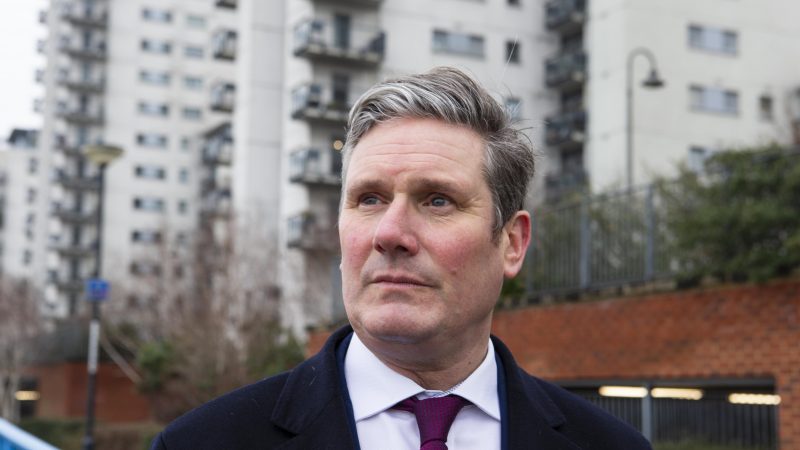
Labour insiders supportive of the leadership have been making the case for bold internal reforms at this party conference. Their argument is that, if the next general election is taking place in 2023 as expected, Keir Starmer should use this opportunity to change the party and limit Corbynite power, allowing September 2022 to be exclusively about outward-facing priorities. The leader himself was said not to be particularly interested in controversial rule changes, but it sounds like those insiders have won the argument. At least two big proposals look set to go to Labour’s national executive committee (NEC) on Friday before being put to conference: a change to the trigger ballot system for reselecting MPs and, more dramatically, a return to the electoral college for leadership elections.
The trigger ballot reform was expected, as this system was changed under Jeremy Corbyn. From 2018, a full selection process can be triggered in a Labour seat when one third of either party branches or affiliate branches vote in favour of it. Before then, it required a majority of both party branches and affiliates combined. It has been suggested to me that the leadership now wants to change it to a majority of either party branches or affiliates, which is a compromise. But we will wait to see the details. Then there is the electoral college move, which is bigger and more of a surprise. It would reverse the switch to one-member-one-vote made by Ed Miliband in 2014.
Instead of every party member’s vote having equal value, and MPs getting their biggest say at the nominations stage, Labour would return to leaders being elected via a college: one third MPs, one third affiliates, one third members. The Labour left is furious. Back in 2014, the OMOV rule change was passed with a whopping 86% of delegates (affiliate and local party) in favour, including the three big affiliated unions Unite, UNISON and GMB. That will not happen now.
While a Labour source last night defended the electoral college measure by saying Starmer wants to return the party to working people and give the unions more power within it, new Unite general secretary Sharon Graham has already come out clearly against the move. In a message to Labour MPs, she has described the plan as “unfair, undemocratic and a backwards step for our party” and urged them to “publicly make clear that they do not support this proposal”.
You can take a look back to what Labour figures were saying several years ago for an illustration of the old Stephen Bush aphorism that eventually every possible position is held by every available faction. Then, Jonathan Ashworth said OMOV was about giving working people more say. More recently, arguing against a return to the electoral college in 2016, Jonathan Reynolds described the old system as “ridiculous”. Both are in the shadow cabinet and Reynolds will be expected to vote in line with the leadership on Friday as a frontbench representative on the NEC.
There is no doubt that the electoral college change is divisive: not only attracting the ire of Unite and the smaller left unions, which is standard in the Starmer era, but soft left group Open Labour has also announced that it will be urging conference delegates to reject it. The big questions are which other union leaders will side with Graham (we will know more about their reactions after the TULO meeting on Wednesday) and whose local party delegate estimate is correct (does Momentum have 55% of them as approximated or does Labour to Win have the majority?). Starmer is putting great confidence in the conference operation being run by his allies.
Sign up to LabourList’s morning email for everything Labour, every weekday morning.



More from LabourList
‘Energy efficiency changes must work for older private renters’
‘Labour’s creative destruction dilemma’
Economic stability for an uncertain world: Spring Statement 2026